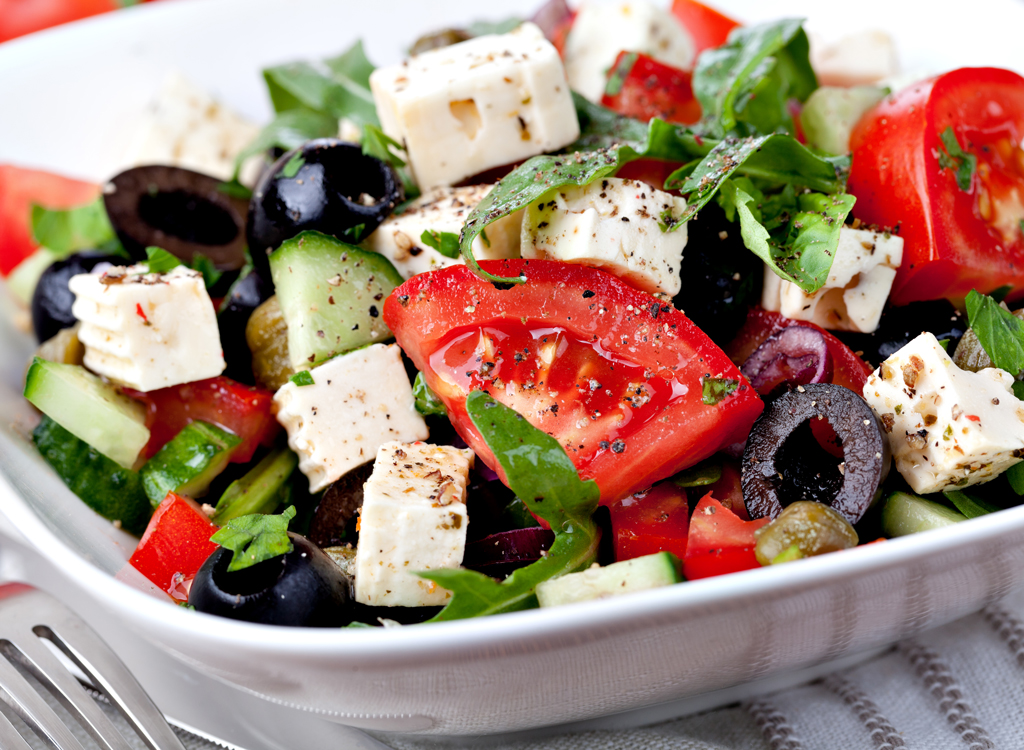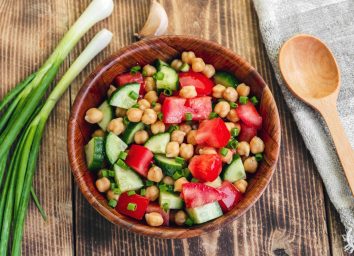The Secret to Preventing Heart Disease in Women Might Be the Mediterranean Diet

We've all been hearing about the perks of the Mediterranean diet for years, but new findings have confirmed that it can be life-saving to follow on a regular basis, especially for women.
A recent study conducted by a team of researchers from Brigham and Women's Hospital, Harvard Medical School, and the Harvard T.H. Chan School of Public Health found that a diet rich in plant-based foods and olive oil reduced the onset of heart disease by a whopping 25 percent in those that participated.
Let's take a look at the results—and learn what foods you should be adding to your diet.
Who participated in the study, and what exactly did it measure?
The study involved more than 25,000 women, all of whom were health professionals. Throughout the study, each individual was instructed to complete questionnaires about their diet and provide blood samples, which helped researchers measure respective biomarkers, or indicators in the blood that signal how prevalent a disease is. Researchers studied each participant for up to 12 years, closely following episodes that are clearly spurred by cardiovascular disease, like heart attack and stroke.
So, what did they find?
The participants were divided into three groups—low, middle, and upper intake of the Mediterranean diet—based on their questionnaire responses. Ultimately, 428 women (4.2 percent) who were among the low-intake group experienced a cardiovascular-related episode. That's more than the 356 women (3.8 percent) in the middle-intake group and 246 (3.8 percent) of women in the upper-intake groups that had similar episodes. These results demonstrate a 25.5 percent reduction in relative risk between the low-intake group and the middle- and upper-intake groups.
The large reduction in the risk of heart disease is nearly, if not entirely, equivalent to the preventive measures statins or medications provide. The study also revealed positive changes in signals of inflammation, the way glucose (sugar) metabolizes and how insulin responds to it, and even body mass index. Most importantly, it allowed researchers to definitively prove the long-term benefits of the Mediterranean diet on heart health.
Convinced to give it a try? Here's what to eat on the Mediterranean diet.
Spinach

The key elements of the Mediterranean diet include primarily plant-based foods, such as fruits and vegetables. Spinach is a top-tier leafy green because of the minerals it has (like calcium). One cup of spinach provides roughly 250 mg of calcium, which is a substantial portion of your suggested daily intake, according to a study by Harvard Medical School.
Almonds

Also considered plant-based foods are whole grains, legumes, and nuts. Almonds, for example, are known for their high antioxidant content. Almonds are especially chock-full of vitamin E, which is important for protecting your body from oxidative damage. In just one ounce of almonds, which is roughly 23 nuts, you'll get 37 percent of your daily vitamin E intake.
Olive oil

The quintessential component of the Mediterranean diet is olive oil. Swapping out butter and coconut oil, which are high in saturated fat, for a low-fat alternative like olive oil will not only will help rid your midsection of fat, but it will also help to reduce inflammation. Be sure to check out 14 Popular Cooking Oils and How to Use Them.








